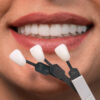Oral health is often considered separately from general health, but in reality, the two are deeply interconnected. What we eat plays a crucial role in maintaining not just a healthy body but also strong teeth and gums. A well-balanced diet can prevent oral health issues, while poor nutrition can lead to problems that require treatments like tooth fillings and gum disease management. Understanding the link between diet, oral health, and overall well-being can help in making informed choices about food and hygiene.
How Diet Affects Oral Health
The foods and beverages we consume directly impact the condition of our teeth and gums. Sugary and acidic foods, for example, contribute to tooth decay and erosion, leading to the need for tooth fillings and other dental procedures. On the other hand, a nutrient-rich diet supports enamel strength, gum health, and saliva production, all of which are essential for keeping your mouth healthy.
Foods That Promote Oral Health
Certain foods are beneficial for dental health due to their ability to strengthen teeth, reduce bacterial growth, and promote saliva production:
– Dairy Products (Milk, Cheese, Yogurt): These are high in calcium and phosphorus, which help rebuild tooth enamel and maintain bone density.
– Leafy Greens (Spinach, Kale, Lettuce): Rich in vitamins and minerals, particularly calcium and folic acid, which support gum health.
– Crunchy Fruits and Vegetables (Apples, Carrots, Celery): These naturally clean teeth by stimulating saliva production and reducing plaque buildup.
– Nuts and Seeds: Contain essential minerals that help remineralize teeth and reduce acidity in the mouth.
– Green and Black Tea: These contain polyphenols that inhibit bacterial growth, reducing the risk of cavities and gum disease.
Foods That Harm Oral Health
Some foods and beverages contribute to poor oral health and should be consumed in moderation:
– Sugary Snacks and Beverages (Candy, Sodas, Processed Juices): Sugar feeds harmful bacteria, leading to acid production that weakens tooth enamel.
– Acidic Foods (Citrus Fruits, Vinegar, Soft Drinks): Can erode enamel over time and make teeth more sensitive.
– Sticky Foods (Dried Fruits, Caramel, Gummy Candy): These cling to teeth, allowing bacteria to thrive and increasing the risk of cavities.
– Excessive Alcohol and Caffeinated Drinks: These can lead to dry mouth, reducing saliva production and making teeth more vulnerable to decay.
The Impact of Oral Health on Overall Well-Being
Oral health is a window to overall health, with various systemic conditions being linked to poor dental hygiene and diet-related issues. Neglecting oral health can contribute to:
Cardiovascular Disease
Gum disease has been linked to heart disease and stroke. Bacteria from inflamed gums can enter the bloodstream, leading to plaque buildup in the arteries, increasing the risk of heart conditions.
Diabetes
Poor oral health can worsen diabetes by making it harder to control blood sugar levels. Conversely, high blood sugar levels create an environment where bacteria thrive, leading to more severe gum infections.
Digestive Issues
Digestion begins in the mouth. Poor oral health can lead to difficulties in chewing food properly, which affects nutrient absorption and can cause gastrointestinal problems over time.
Mental Health and Confidence
Oral health issues such as cavities, missing teeth, or bad breath can affect self-esteem and social interactions, leading to anxiety and depression in some individuals.
Tips for Keeping Your Mouth Healthy
Maintaining good oral health goes beyond brushing and flossing. A combination of proper nutrition, hydration, and regular dental visits is essential for overall well-being. Here are some effective ways to protect your teeth and gums:
– Adopt a Balanced Diet: Focus on nutrient-dense foods that support both oral and general health.
– Stay Hydrated: Water helps wash away food particles and bacteria, reducing the risk of cavities and gum disease.
– Practice Good Oral Hygiene: Brush at least twice a day, floss daily, and use an antibacterial mouthwash.
– Limit Sugar and Acidic Foods: Reduce the intake of sugary and acidic foods to prevent enamel erosion.
– Visit the Dentist Regularly: Regular dental check-ups help identify and treat issues before they worsen, preventing the need for procedures like tooth fillings.
The connection between diet, oral health, and overall well-being is undeniable. Making informed dietary choices and maintaining proper oral hygiene not only helps in keeping your mouth healthy but also reduces the risk of systemic health issues. By prioritizing a nutritious diet and regular dental care, you can achieve long-term health benefits that extend beyond your smile.






